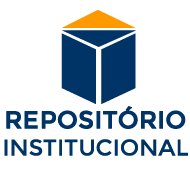Use este identificador para citar ou linkar para este item:
http://aprender.posse.ueg.br:8081/jspui/handle/123456789/245| Título: | O EU FEMININO EM FORMAÇÃO EM UMA APRENDIZAGEM OU O LIVRO DOS PRAZERES, DE CLARICE LISPECTOR, NA ÓTICA DO AMOR PLATÔNICO |
| Autor(es): | Gomes, Maria Gabriela Lima Gandra, Jane Adriane |
| Palavras-chave: | Amor Alma Eu Existir Aprendizagem |
| Data do documento: | Nov-2018 |
| Editor: | Universidade Estadual de Goiás |
| Resumo: | Aprender e ensinar não é uma tarefa simples nem para o mentor e, tampouco, para o aprendiz. O presente trabalho dedica-se à análise das obras Uma Aprendizagem ou O Livro dos Prazeres, de Clarice Lispector, sob a perspectiva do conceito de Amor discutido em O Banquete, de Platão. Com isso, pretende-se verificar se a formação do Eu feminino na obra clariciana se aproxima da essência do “amor platônico”. No ficcional modernista, a protagonista Loreley passa por inúmeros rituais de passagem, como forma de amadurecimento, para só assim estar em sintonia com o amor ofertado por Ulisses. Para as etapas de interpretação e comparação entre as obras corpus deste estudo, utilizou-se como método de pesquisa a revisão bibliográfica: atividades de leitura, releituras, estudo comparativo entre as temáticas centrais que envolviam os conceitos de Amor e a relação amorosa entre os protagonistas de Uma Aprendizagem ou O Livro dos Prazeres. Certo é, que Lispector desenha uma história paradigmática, não apenas pelo fato de iniciá-la com uma vírgula e a “encerrá-la” com dois pontos, mas, por trazer uma narrativa em que os personagens aprendem a amar de uma maneira nada convencional no que diz respeito aos romances românticos tradicionais. Durante o seu processo de formação e busca do seu Eu, Loreley passa pela via crucis ao abarcar numa viagem internalizada de muitas dúvidas, desejos, angústias, temores e, por fim, o seu maior sonho, EXISTIR (AMAR). Passar do mundo sensível para experimentar o mundo intangível, exigiu de Loreley muita sabedoria, competência esta que ela nunca pensara possuir. Enquanto que, para Ulisses, participar desta aprendizagem exigiu dele muita benevolência. O universo clariciano dialoga com a filosofia platônica no sentido de que o amor verdadeiro é o encontro de almas.__________________________________________________ Learning and teaching is not a simple task neither for the mentor, nor for the learner. The present work is dedicated to the analysis of the works A Learning or The Book of Pleasures (Uma Aprendizagem ou O Livro dos Prazeres), from Clarice Lispector, from the perspective of the concept of Love debated in Plato's The Banquet. (O Banquete de Platão) Thus it is intended to approach that the generation of the feminine Ego in the work of Clarice is very close to the essence of "platonic love". In the modernist fictional, the protagonist Loreley goes through countless rites of passage, as a way of personal maturation, and be able to be connected with the love offered by Ulysses. For the interpretation stages and simile between the corpus works of this study, the bibliographic review was used as reading method: reading activities, rereading, comparative study between the main themes that involved the concepts of love and the love relationship between the protagonists of An Apprenticeship or The Book of Pleasures. It is sure that Lispector draws a paradigmatic story, not only by possuir initiating it with a comma and "enclosing it" with two points, but by bringing a narrative in which the characters learn how to love in an unconventional way regarding to traditional romantic novels. During its development and seeking process of searching for his "I", Loreley goes through the crucis way by boarding in an internalized journey of many doubts, desires, anxieties, fears and, finally, her greatest dream, EXISTS (LOVE). Moving from the sensitive world to experiencing the intangible world, demanded a lot of wisdom, a competence from Loreley that she had never thought to have. Whereas, for Ulysses, participate in this learning required from him a great deal of benevolence. The Clarician universe dialogues with Platonic philosophy in the sense that true love is the encounter of souls. |
| URI: | http://187.6.250.232:8081/jspui/handle/123456789/245 |
| Aparece nas coleções: | Artigos científicos |
Arquivos associados a este item:
| Arquivo | Descrição | Tamanho | Formato | |
|---|---|---|---|---|
| Artigo - Maria Gabriela Lima Gomes.pdf | 897,58 kB | Adobe PDF | Visualizar/Abrir |
Os itens no repositório estão protegidos por copyright, com todos os direitos reservados, salvo quando é indicado o contrário.
